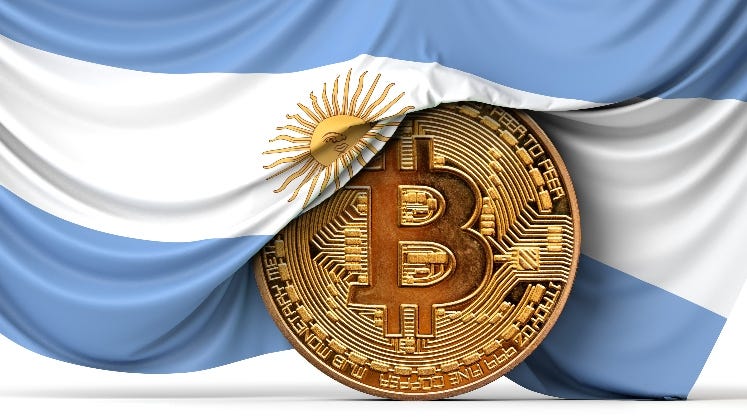What’s up everybody — Matt here with Daily Crypto News, joined by the newly married Comrade Kyle, a.k.a. Crypto Quile, reporting live from Buenos Aires at the Ethereum DevConnect Festival.
Kyle’s fresh off tying the knot — congrats, brother — and right back in the thick of the global crypto scene.
KYLE REPORTS FROM DEVCONNECT
Kyle’s on the ground in Buenos Aires for Ethereum’s annual developer conference, DevConnect 2025.
It’s a week-long marathon of side events and deep-dive sessions into every part of the ecosystem — and this year, one name keeps coming up: Cosmos.
Kyle attended Sovereign Day, hosted by Interop Ventures and Cosmos Labs, where builders focused on how Cosmos SDK and its IBC protocol are quietly powering huge parts of the crypto world.
“Cosmos is like the invisible giant,” Kyle said. “Everyone talks about Ethereum, Solana, and Bitcoin — but Cosmos tech underpins a ton of major projects. It lets countries or banks spin up their own customizable chains and even sovereign stablecoins.”
Projects like Ondo Finance and several sovereign-nation pilots are using Cosmos architecture today — and yet, hardly anyone’s talking about it.
MATT ON CLOUDFLARE & DECENTRALIZATION
That naturally led us into Monday’s big story — Cloudflare’s outage that took 15% of the global internet offline.
It was a self-inflicted crash: a permissions change in one of their database clusters doubled a file size, created looping “good file / bad file” chaos, and made the whole internet blink.
“We took a decentralized technology and made it fragile by centralizing it behind a handful of providers,” Jameson Lopp tweeted.
Exactly the same risk Kyle and I see forming in crypto right now.
Just because something’s everywhere doesn’t mean it’s decentralized.
Cloudflare showed how one bad config can break the web — and centralization in crypto could do the same.
VITALIK’S TAKE: WALL STREET IS JUST MORE USERS
Kyle then recapped Vitalik Buterin’s opening talk from DevConnect.
When asked how Ethereum should view Wall Street’s growing involvement, Vitalik said:
“Ethereum is pro-user. Wall Street is just more users.”
In other words, the institutions are coming — and they might just learn our systems instead of the other way around.
Kyle pointed out that even major banks could soon participate in DAO governance votes on protocols like Arbitrum, raising real questions about manipulation and influence.
But the optimistic side: if more traditional players adopt decentralized systems, maybe some of that decentralization culture starts to bleed back into traditional finance.
SATOSHI, EPSTEIN, AND THE WHO-CARES DEBATE
The conversation inevitably turned to Jeffrey Epstein’s emails mentioning a meeting with “Satoshi (Bitcoin)” in 2014.
Was it real? Coincidence? Hal Finney had just died weeks before — and maybe Epstein didn’t know.
My take:
Does it even matter anymore?
Whoever made Bitcoin gave the world a perfectly decentralized monetary network that hasn’t broken once in fifteen years.
It doesn’t need a face — it needs stewardship.
Kyle added a good point:
If it turned out Satoshi was some random guy, or worse, someone controversial, it could shake public psychology short-term. But the tech itself doesn’t change.
LIFE AND CRYPTO IN ARGENTINA
Kyle’s trip also reveals why crypto is more than speculation here — it’s survival.
Argentina’s inflation is crushing. Prices have doubled in just a few years, and even everyday goods like bottled water cost U.S.-level prices.
People turn to stablecoins like USDT and USDC just to store value or get paid for work.
You can even find “Cuevas” — informal exchange shops — that list Tether right on their windows.
“Vitalik mentioned it himself — people here are literally using stablecoins for groceries,” Kyle said.
“While Wall Street talks tokenization, Argentines talk about eating.”
That’s real-world crypto adoption — not hype cycles, not speculation — but necessity.
GEOPOLITICS AND SOVEREIGNTY
We closed on geopolitics.
Kyle said local discussions often circle around sovereignty — both economic and technological.
Argentina’s unions (the sindicatos) and entrenched bureaucracy make innovation difficult.
Even under President Javier Milei’s reforms, resistance runs deep.
“At Sovereign Day, local devs said Argentina could become a sandbox for global crypto products,” Kyle explained.
“They want to prove this tech can work where trust in government has failed.”
That drive — fighting upstream against a failing system — is what makes Argentina such a natural testbed for decentralized finance.
MEDIA IN FLUX
Before wrapping, Kyle dropped one last nugget from the conference circuit:
Crypto media itself is evolving fast — Blockworks has laid off its writing team, and rival outlets are moving AI-first.
There’s a reckoning coming in how crypto journalism operates, and DCN plans to stay grounded in human conversations like this.
OUTRO
That’s it for today’s special DCN Live from Argentina.
Big thanks to Crypto Quile for checking in fresh off his wedding and the DevConnect floor.
Follow us on DailyCryptoNews.net, send your questions through Spotify or Substack, or email us directly: matt@dailycryptonews.net or kyle@dailycryptonews.net.
Happy HODLing, Everyone.














